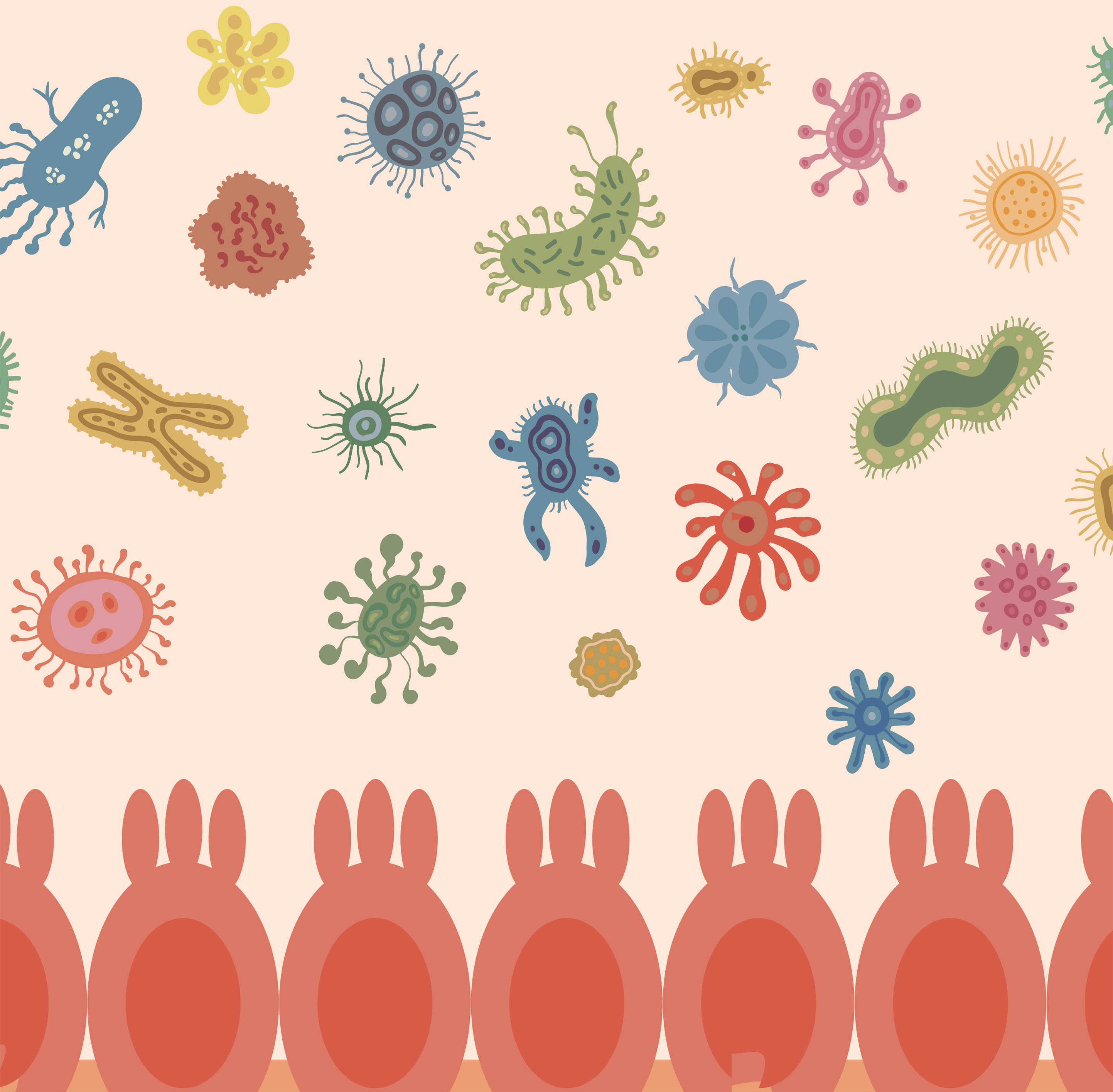At-A-Glance
- A clean diet is a great start to prevent acid reflux—but not enough on its own. Even whole foods can contribute to acid reflux if they are acidic, fatty, or poorly timed.
- Common reflux triggers include both food choices and lifestyle habits. Citrus, chocolate, carbonated drinks, large or late meals, and alcohol can all play a role.
- Reflux prevention involves more than just eating well. Adjusting meal timing, portion sizes, and food and beverage choices can significantly reduce your risk.
- If you already have reflux, treatment may include dietary adjustments, lifestyle changes, and targeted support like famotidine or alginates.
Join Dr Jamie Koufman on Facebook Live at noon EST on the first Wednesday of each Month. If you miss it live, you can also see it on YouTube.
Many people believe that eating an organic, whole-food diet protects them from developing acid reflux. While a clean and nutritious diet has many health benefits, it doesn’t necessarily prevent reflux—and in some cases, it may even mask underlying habits that contribute to it.
Acid reflux is driven by a range of factors that go well beyond food quality. Even if your diet is free from pesticides, processed ingredients, and artificial additives, you can still develop reflux—especially the kind that doesn’t cause heartburn.
In this article, we’ll explore both dietary and lifestyle factors that can lead to reflux. But first, let’s understand how reflux happens in the first place—so we can recognize how even a healthy diet might be playing a role.
Why Acid Reflux Happens—Even With a Clean Diet
It’s a common misconception that reflux is only caused by greasy or processed foods. While these foods can certainly trigger reflux, even clean and organic meals can contribute—especially when certain dietary or behavioral patterns are present.
The physiology of reflex is the key to why this happens. Acid reflux occurs when the lower esophageal sphincter (LES)—the muscular valve between the stomach and esophagus—relaxes or weakens at the wrong time, allowing stomach contents to move upward.
This reflux mixture includes acid and pepsin, a digestive enzyme that, once it reaches the throat or airway tissues, can adhere to those tissues and remain there. Pepsin can then be reactivated by stomach acid or even by acidic foods and beverages, leading to ongoing inflammation and persistent symptoms.
Certain trigger foods and beverages, even when healthy, can contribute to reflux through the following mechanisms:
- Relax the LES – Citrus, peppermint, chocolate, and high-fat foods like avocado, nuts, coconut, and fried items can relax or weaken the lower esophageal sphincter, making it easier for reflux to occur.
- Increase stomach pressure – Overeating, large meals, or carbonated beverages can distend the stomach and push contents upward.
- Irritate sensitive tissues through acidity – Carbonated drinks, tomatoes, vinegar, kombucha, and citrus can reactivate pepsin that has traveled beyond the stomach, leading to irritation and chronic inflammation of sensitive tissues, especially in the throat and upper airway.
In addition to food triggers, lifestyle patterns significantly impact reflux risk:
- Late-night eating – Lying down too soon after eating makes it easier for acid and pepsin to travel upward.
- Large evening meals – When dinner is the biggest meal of the day, it puts more pressure on the stomach and increases the chances that foods that relax the LES will still be digesting by bedtime.
- Snacking after dinner – Keeping the stomach active into the night prolongs acid production and increases reflux risk.
- Alcohol in the evening – Alcohol relaxes the LES, which is especially detrimental in the evening before bedtime.
- Exercise too soon after meals – Physical activity, especially core-heavy or high-impact exercise, can worsen reflux when done on a full stomach.
Even if your meals are entirely clean and organic, the wrong habits can override those benefits. Preventing reflux isn’t just about food quality—it’s also about how that food interacts with your body’s timing, pressure, and physiology.
And here’s something most people don’t realize: you might be experiencing reflux symptoms even if you’ve never felt heartburn.
Respiratory Reflux: The Overlooked Symptoms
When people think of acid reflux, they often picture heartburn. But in many cases—especially in those who eat well—reflux shows up in less obvious ways. This form of reflux, known as respiratory reflux or laryngopharyngeal reflux (LPR), affects the throat, sinuses, and airways rather than the esophagus.
Because the symptoms are so different—and heartburn is often absent—this type of reflux is frequently missed or misdiagnosed.
Symptoms of respiratory reflux may include:
- Postnasal drip
- Hoarseness or voice changes
- A chronic cough or throat clearing
- A lump-in-the-throat sensation
- Difficulty swallowing
- Sinus congestion
- Shortness of breath or asthma-like symptoms
These signs are often mistaken for allergies, sinus problems, or respiratory infections. But when pepsin and acid repeatedly reach the throat and airway tissues, they cause inflammation that can lead to chronic symptoms—even in people who eat a clean, healthy diet.
How to Prevent Acid Reflux—Even If Your Diet is Clean
If you’re not currently experiencing reflux or the stealthy symptoms that can be related to silent or respiratory reflux, and you already eat a clean healthy diet, you can reduce your risk further by focusing on when and how you eat. Helpful strategies include:
- Avoiding carbonated and acidic drinks, especially citrus juices and soda
- Finishing your last meal at least 3–4 hours before bed
- Limiting alcohol, particularly in the evening
- Eating smaller, well-timed meals throughout the day
- Not using dinner as your primary refueling meal
While prevention is ideal, many people don’t recognize the signs of reflux until symptoms are well underway—especially in the case of silent or respiratory reflux. In these cases, additional steps are needed to actively reduce inflammation and restore balance.
Managing Reflux: What to Do If You Already Have It
Once reflux has developed—especially respiratory reflux—it takes more than dietary quality to bring it under control. Even healthy foods can be problematic if they are high in fat or acidity.
Core treatment strategies include:
- Eliminate carbonated beverages and acidic juices
- Avoid alcohol, especially at night
- Don’t snack after dinner
- Keep the last meal of the day light and early
- Avoid fatty foods, even if they’re natural or organic (e.g., avocado, nuts, coconut)
Use medication if needed, such as:
- Famotidine (Pepcid) – Famotidine is an over-the-counter acid reducer. A typical regimen might include 20 mg in the morning, 20 mg before your evening meal, and 40 mg before bed (this is sold over the counter, but always check with your doctor first).
- Alginates like Gaviscon Advance – These create a protective barrier that helps reduce reflux episodes, especially at night.
Addressing reflux requires more than removing obvious triggers—it involves understanding how food and habits interact with the body’s natural physiology. With the right adjustments, it’s possible not only to reduce symptoms, but to support long-term healing.
Final Thoughts
A healthy, whole-food diet is an excellent foundation for wellness—but it doesn’t make you immune to reflux. Factors such as meal composition (including fatty or acidic foods), along with meal timing, portion sizes, beverage choices, and evening habits, all play a crucial role in whether reflux develops or persists.
Ultimately, aligning your lifestyle with your body’s natural rhythms is key. By doing so, you can take meaningful steps not only toward symptom relief, but toward long-term digestive balance and improved overall well-being.
For more information about diagnosis and treatment of acid reflux, see two companion books on Amazon: Dr. Koufman’s Acid Reflux Diet and Dropping Acid: The Reflux Diet Cookbook & Cure. If you would like to receive personalized guidance and strategies for lasting relief, consider scheduling an online consultation.










